What's in Barbecue Seasoning? Essential Ingredients
Barbecue seasoning is a blend of spices and herbs designed to enhance grilled meats. While recipes vary by region and preference, these core ingredients form the foundation of most blends:
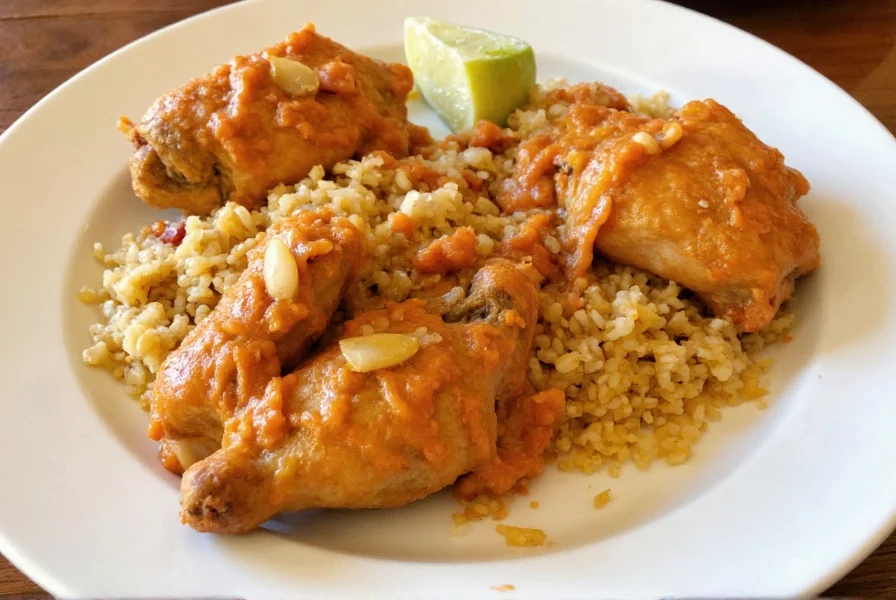
- Garlic Powder – Adds savory umami depth
- Onion Powder – Enhances natural sweetness
- Paprika – Provides color and mild smokiness
- Salt – Balances and amplifies all flavors
- Black Pepper – Adds subtle spice complexity
- Cayenne Pepper – Delivers adjustable heat
- Sugar – Creates caramelization and balances heat (common in commercial blends)
- Dried Oregano/Thyme – Introduces herbal complexity
Types of Barbecue Seasonings
| Type of Seasoning | Key Features |
|---|---|
| American BBQ Seasoning | Paprika, garlic, onion, cayenne, and black pepper base |
| Carolina BBQ Rub | Lighter profile with vinegar-based tanginess |
| South Carolina BBQ Rub | Mustard-based with high cayenne and paprika |
| Memphis BBQ Rub | Bold dry rubs featuring intense paprika |
| Tex-Mex BBQ Rub | Chili powder, cumin, and coffee for depth |
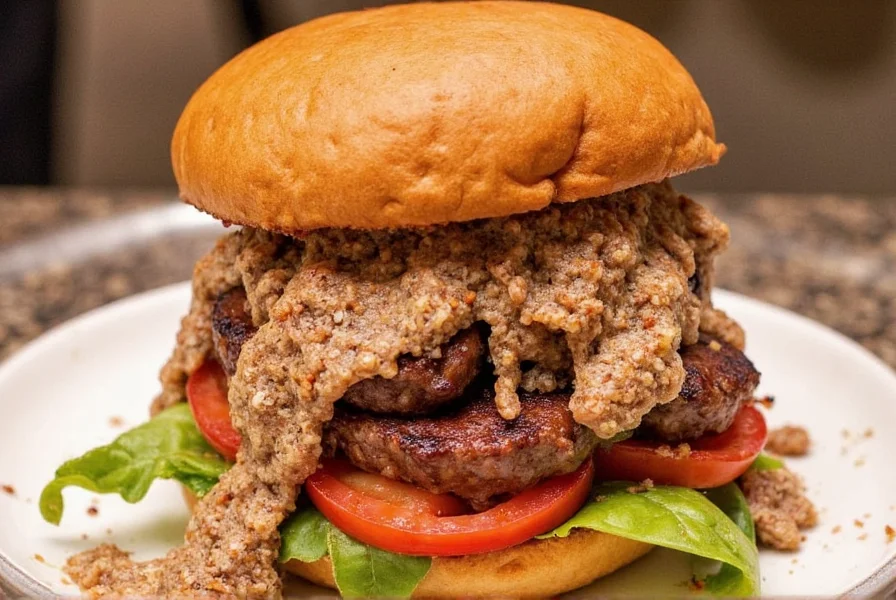
Practical Tips for Using Barbecue Seasoning
- Apply early: Season at least 30 minutes before grilling for optimal flavor penetration
- Use a light hand: Start with 1 tsp per pound of meat; adjust to taste
- Combine with sauce: Apply sauce after cooking to prevent burning
- Store properly: Keep in airtight container away from light and moisture
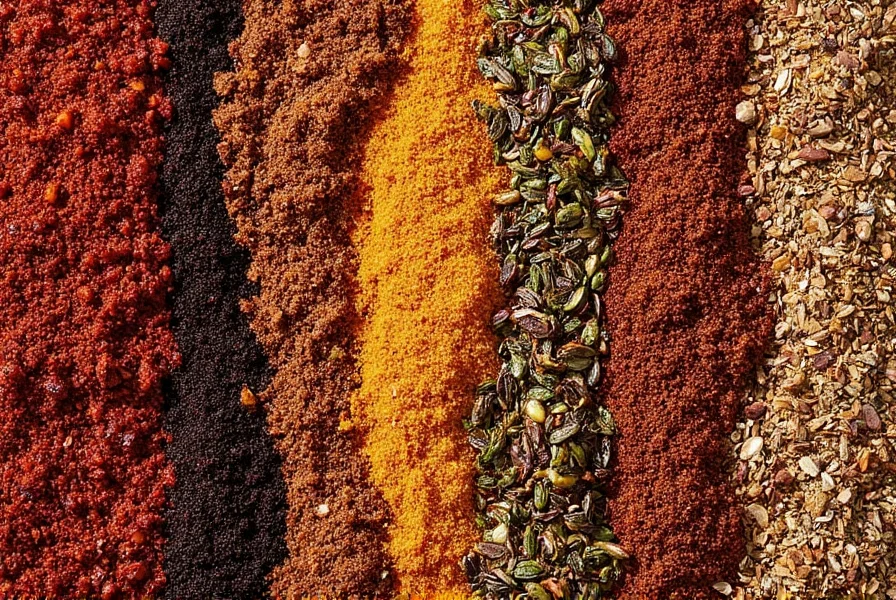
Frequently Asked Questions
What are the essential ingredients in barbecue seasoning?
Core ingredients include paprika (color/smokiness), garlic/onion powder (savory depth), salt (flavor enhancer), black pepper (spice complexity), cayenne (heat), sugar (caramelization/balance), and dried herbs like oregano. Most commercial blends contain sugar, but sugar-free options exist.
How is barbecue seasoning different from a dry rub?
Barbecue seasoning typically refers to finer spice blends used for surface application, while dry rubs contain more sugar and are designed to form a crust (bark) during cooking. Dry rubs often have coarser texture and higher sugar content for caramelization.
Does barbecue seasoning always contain sugar?
Most commercial blends include sugar (white, brown, or turbinado) for caramelization and heat balance, but sugar-free versions are available for low-carb or savory-focused profiles. Homemade blends can easily omit sugar.
How long does homemade barbecue seasoning last?
Stored in airtight containers away from heat and light, homemade blends maintain peak flavor for 6-12 months. Ground spices gradually lose potency but remain safe indefinitely if kept dry.
Can I use barbecue seasoning on vegetarian dishes?
Absolutely! It works exceptionally well on grilled vegetables, tofu, tempeh, roasted nuts, and plant-based proteins. The spice blend adds depth to any dish requiring savory, smoky notes.
What's the difference between barbecue seasoning and marinade?
Seasoning is a dry spice blend applied to the surface for immediate flavor and crust formation. Marinades are liquid mixtures that penetrate deeper through soaking, tenderizing meat while infusing flavor. Many cooks use both for layered flavor profiles.

Buying Guide: Choosing the Right Barbecue Seasoning
Features to Look For
- Flavor Profile: Match to your preference (spicy, sweet, smoky, or balanced)
- Ingredients: Opt for natural ingredients without artificial additives; organic options available
- Consistency: Dry rubs (for crust formation) vs. wet seasonings (for immediate coating)
- Brand Reputation: Trusted brands include Tony Chachere's, KC Masterpiece, and Larry's Original
Best Uses
- Grilling meats (chicken, pork, beef)
- Enhancing vegetables, tofu, or roasted nuts
- Seasoning slow-cooked or smoked dishes
Recommended Products
- Tony Chachere's Creole Seasoning – Versatile blend with sweet-spicy kick
- KC Masterpiece BBQ Dry Rub – Bold smoky flavor for ribs and brisket
- Larry's Original BBQ Rub – Traditional taste for authentic BBQ
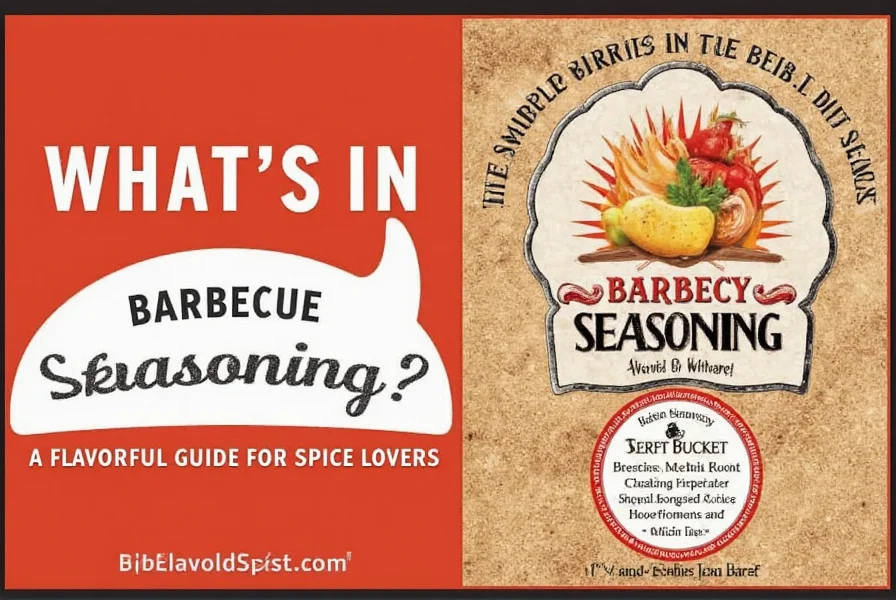
Conclusion
Barbecue seasoning's magic lies in its core ingredients: paprika, garlic, onion, salt, pepper, and controlled heat from cayenne. While regional variations exist, understanding these fundamentals allows you to customize blends for any grill session. Remember: the best seasoning is one that complements your cooking style and ingredients. Experiment fearlessly, and let the smoky flavors elevate your next barbecue!
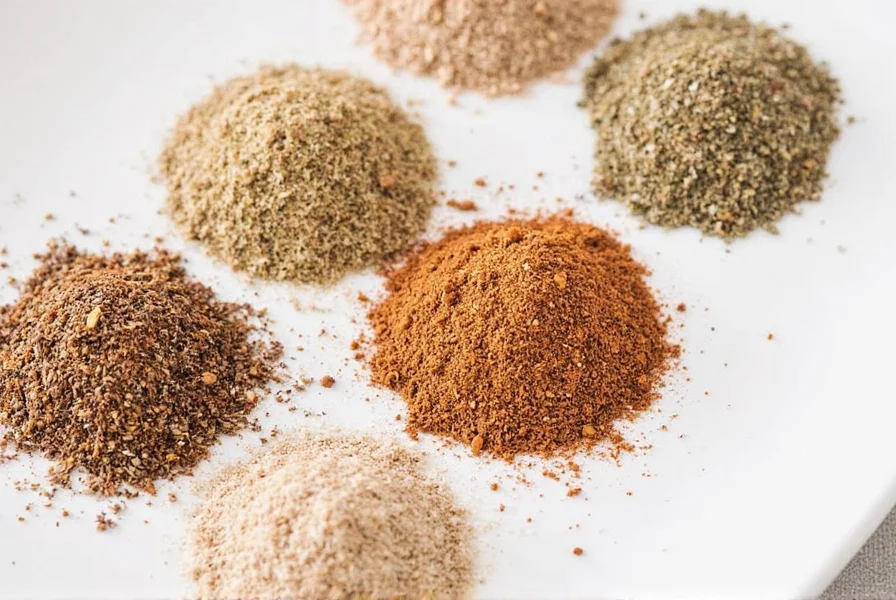

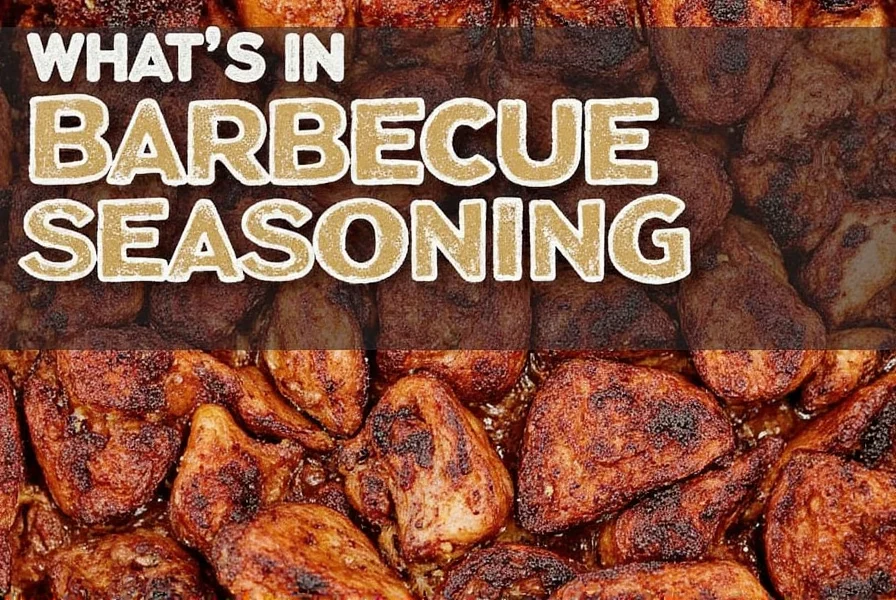









 浙公网安备
33010002000092号
浙公网安备
33010002000092号 浙B2-20120091-4
浙B2-20120091-4